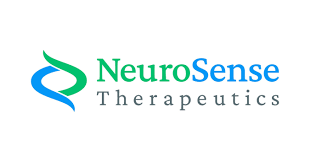
What You Should Know:
– NeuroSense Therapeutics Ltd., a company developing treatments for severe neurodegenerative diseases, and NeuraLight, a company developing objective and sensitive biomarkers for neurological disorders, today announced a collaboration to advance the science of digital biomarkers in the detection and monitoring of neurological diseases including amyotrophic lateral sclerosis (ALS).
– This agreement marks NeuraLight’s first clinical trial and comes on the heels of NeuraLight’s $25M Series A raise, less than six months after launching the company out of stealth.
Digitizing Neurological Evaluation and Care
NeuraLight is on a mission to transform the lives of billions of people impacted by neurological disorders by digitizing neurological evaluation and care. Using their AI-driven platform to integrate multiple digital markers to accelerate and improve drug development, monitoring, and precision care for patients with neurological disorders, NeuraLight is revolutionizing patient care.
NeuraLight’s platform, which uses proprietary computer vision and deep learning algorithms to extract over 100 occulometic markers from facial videos captured with a standard webcam, will be used to evaluate ALS patients in a study parallel to NeuroSense’s Phase IIb PARADIGM trial. PARADIGM is a double-blind, placebo-controlled study evaluating the efficacy of NeuroSense’s lead combination drug candidate, PrimeC, in the treatment of ALS. The NeuroSense-NeuraLight collaboration entails sharing and tracking patient data to advance the identification and use of ALS digital biomarkers.
“There is compelling value in the use of precise biomarkers to diagnose and track the progression of neurodegenerative diseases. We are very pleased to work with the stellar team at NeuraLight who are pioneering the development of digital oculometric biomarkers. This is a great complement to our ongoing collaboration with Massachusetts General Hospital on biological markers of ALS,” said NeuroSense CEO Alon Ben-Noon. “We believe these tools have the potential to enable patient stratification and increase likelihood of success in a pivotal trial. This is a first step in what we envision as a long-term collaboration with NeuraLight in ALS as well as future studies we plan for Alzheimer’s disease and Parkinson’s disease.”
